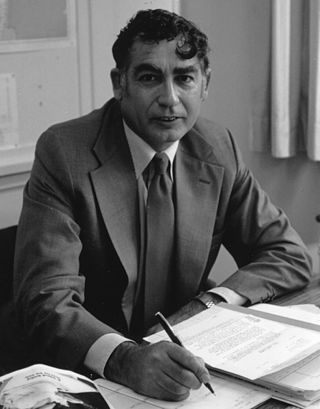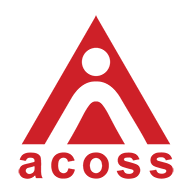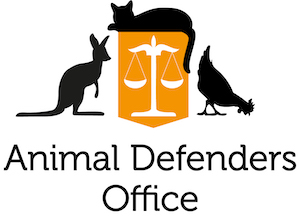Consumer organizations are advocacy groups that seek to protect people from corporate abuse like unsafe products, predatory lending, false advertising, astroturfing and pollution.

The Alliance for Justice (AFJ) is a progressive judicial advocacy group in the United States. Founded in 1979 by former president Nan Aron, AFJ monitors federal judicial appointments. AFJ represents a coalition of 100 politically liberal groups that have an interest in the federal judiciary. The Alliance for Justice presents a modern liberal viewpoint on legal issues.
Most commonly known as CHOICE, the Australian Consumers' Association is an Australian not for profit consumer advocacy organisation. It is an independent membership based organisation founded in 1959 that researches and campaigns on behalf of Australian consumers. It is similar to the Consumers Union in the United States and Which? in the United Kingdom, who are considered sister organisations. It is the largest consumer organisation in Australia.

The Consumer Federation of America (CFA) is a non-profit organization founded in 1968 to advance consumer interests through research, education and advocacy.

Michael J. Vernon, AM was a prominent Australian consumer rights activist. Vernon was born in Portsmouth, United Kingdom in 1932 to John Ernest Vernon and Caroline Clark Vernon. In 1955, he emigrated to Australia, where he settled in Canberra. He was a joint founder of Canberra Consumer in 1962 and served on the Executive of Canberra Consumer until his death in 1993.

Allan James Asher is an Australian lawyer, consumer advocate and campaigner.

The Australian Council of Social Service (ACOSS) is an Australian organisation that advocates for action to reduce poverty and inequality, and is the peak body for the community services sector in Australia. It was formed in 1956.
Illicit drug use in Australia is the recreational use of prohibited drugs in Australia. Illicit drugs include illegal drugs, pharmaceutical drugs when used for non-medical purposes, and other substances used inappropriately. According to government and community organisations, the use and abuse, and the illegality, of illicit drugs is a social, health and legal issue that creates an annual illegal market estimated to be worth A$6.7 billion. Estimates made in 2022 place the figure at A$11.3 billion per year.

The National Network to End Domestic Violence(NNEDV) is a 501(c)(3) not-for-profit organization founded in 1990, based in the District of Columbia. It is a network of state and territorial domestic violence coalitions, representing over 2,000 member organizations nationwide. The National Network to End Domestic Violence works to address the many aspects of domestic violence.
A community legal centre (CLC) is the Australian term for an independent not-for-profit organisation providing legal aid services, that is, provision of assistance to people who are unable to afford legal representation and access to the court system. They provide legal advice and traditional casework for free, primarily funded by federal, state and local government. Working with clients who are mostly the most disadvantaged and vulnerable people in Australian society, they also work with other agencies to address related problems, including financial, social and health issues. Their functions may include campaigning for law reform and developing community education programs.

The International Pharmaceutical Students' Federation (IPSF) is a non-governmental, non-political and non-religious organisation that represents pharmaceutical students, pharmacy students and recent graduates from all over the world. It was founded in 1949 and it is the oldest faculty-based student organisation. IPSF represents over 500,000 individuals in more than 100 countries with 127 different representative pharmacy student member organisations.
Victoria Legal Aid (VLA), formerly the Legal Aid Commission of Victoria, is an organisation that provides information, legal advice and education with a focus on the prevention and early resolution of legal problems.

Jeffrey Laurence Bleich is an American lawyer and diplomat from California.
Advocacy groups, also known as lobby groups, interest groups, special interest groups, pressure groups, or public associations, use various forms of advocacy or lobbying to influence public opinion and ultimate public policy. They play an important role in the development of political and social systems.
The organisation of sport in Australia has been largely determined by its Federal system of government – Australian Government and six states and two territories governments and local governments. All three levels play an important role in terms of funding, policies and facilities. Each major sport is managed by a national sports organisation, with state counterparts that manage community sporting clubs. Umbrella or peak organisations represent the interests of sports organisations or particular sport issues. Education sector plays a small role through universities and schools. Private sector's involvement is extensive in professional sport through facilities, club ownership and finance/sponsorship.

Justice Action is a not-for-profit community organisation based in Sydney, Australia. Justice Action focuses on abuses of authority in the criminal justice and mental health systems in Australia. Founded in 1979 as Prisoner Action, Justice Action is independent of the Australian government and is funded by voluntary donations and the work of the social enterprise, Breakout Media Communications. Justice Action's coordinator is Brett Collins, an ex-prisoner who began with the organisation in 1979 as co-founder. Alongside Collins, Justice Action is run by a team of interns who are university students in law and other degrees.
The Consumer Action Law Centre (CALC), also known as Consumer Action, is primarily a campaign-focused consumer advocacy organisation, but also acts as a community legal centre, providing free legal advice and pursuing litigation on behalf of vulnerable and disadvantaged consumers across Victoria, Australia. Based in Melbourne, it was formed in 2006 by the merger of the Consumer Law Centre Victoria and the Consumer Credit Legal Service and is funded jointly by Victoria Legal Aid and Consumer Affairs Victoria. Its mission is "just outcomes, for and with consumers". The organisation is national in its policy and advocacy work, while its services primarily service people residing in Victoria.

The Animal Defenders Office (ADO) is an Australian community legal centre focusing on animal law, specialising in issues surrounding impounded dogs, assistance animals, the setting up animal of charities, and the defence of animal activists. The ADO is also involved in a range of community outreach and advocacy activities, including the production of legal fact sheets, presentations in public education forums, community events, and university panels, and involvement with local animal advocacy groups. It is a member of the National Association of Community Legal Centres in Australia, and as such is a not-for-profit organisation that provides free legal advice to the community and advocates for law reform.
The Australian Taxpayers’ Alliance (ATA) is a taxpayer group whose stated mission is "to transform Australia into [a] low-tax, small-government, market-based economy."









